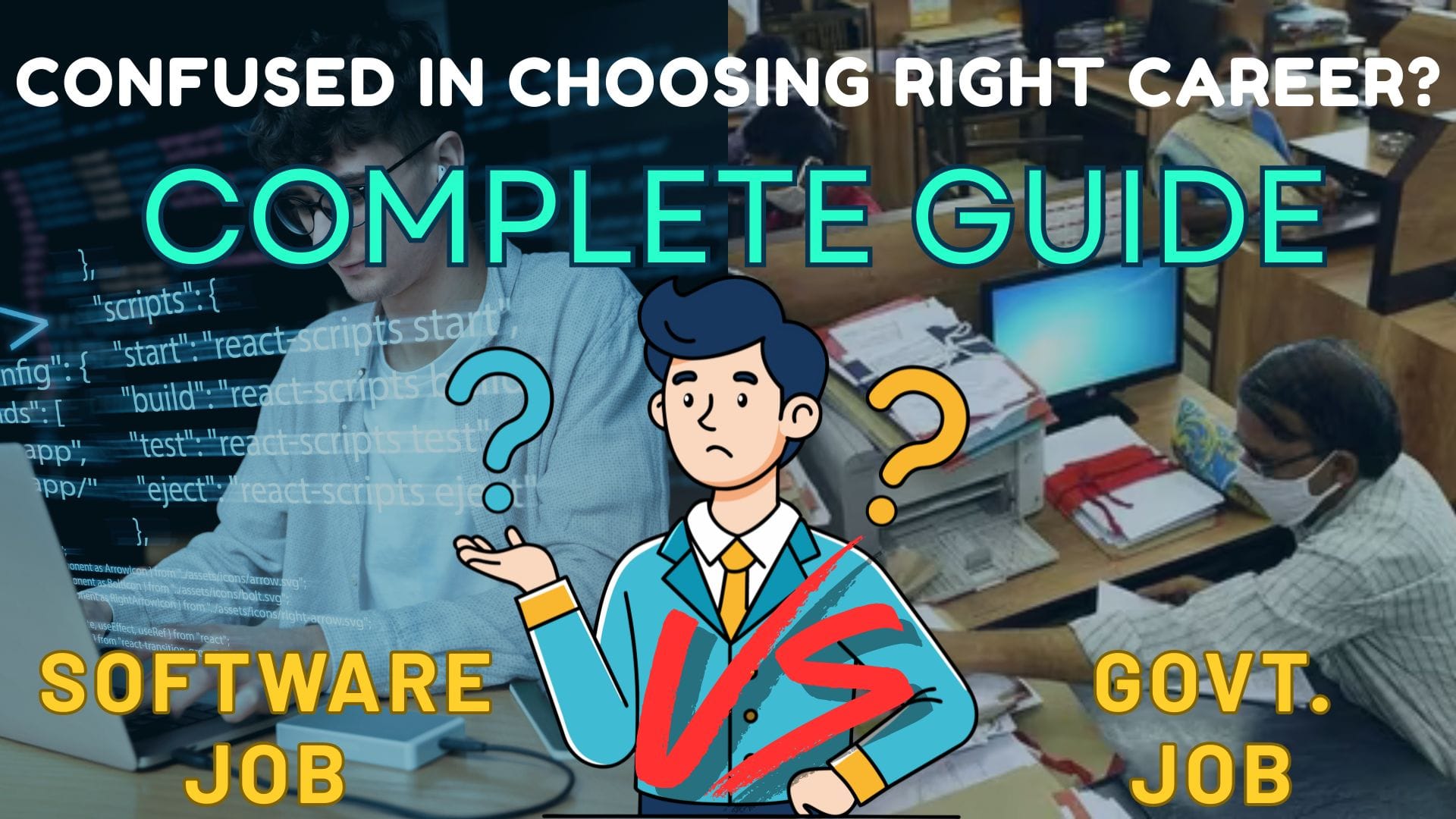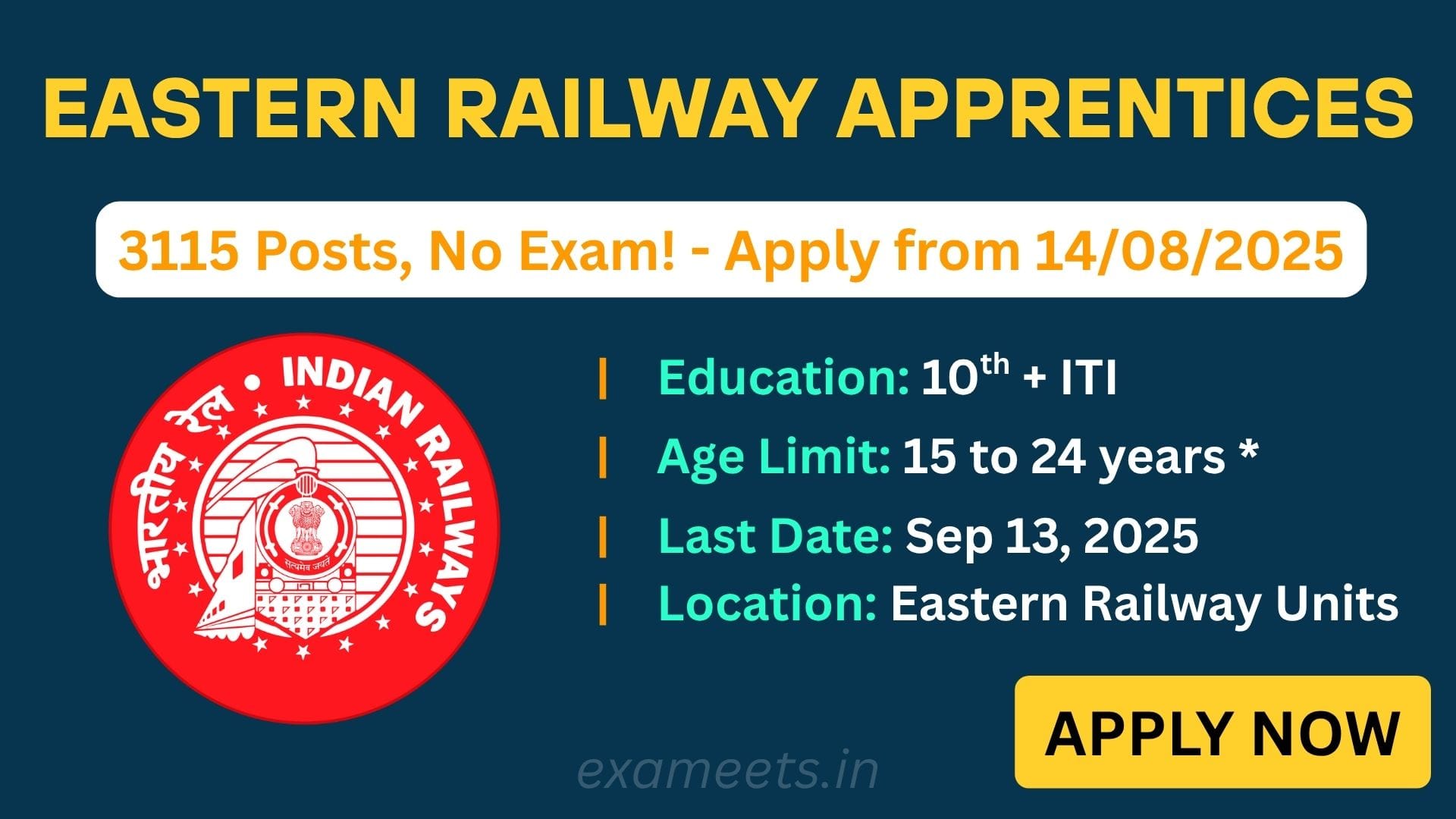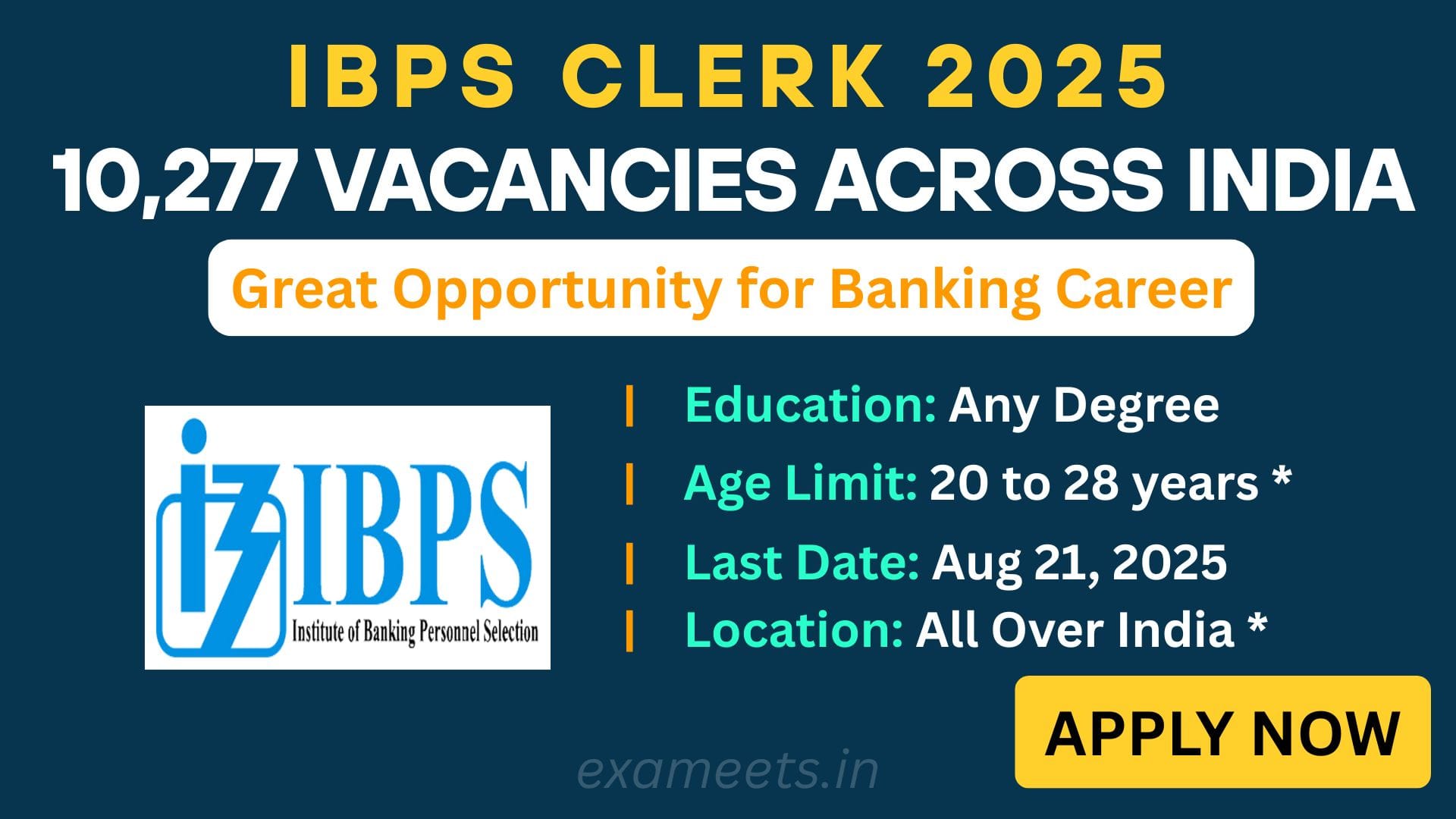Introduction
Choosing a career isn’t just about chasing a paycheck. It’s about long-term satisfaction, lifestyle compatibility, stability, and purpose. For many graduates and job-seekers – especially in India, the biggest career debate often boils down to two major options: software job vs government job.
This guide goes beyond just listing pros and cons. We will dig deep into every critical factor: salary, stress, job growth, social respect, flexibility, perks, and retirement. Whether you’re just starting out, considering a switch, or advising someone else, this comprehensive comparison will help you make an informed, realistic choice.
Overview of Software Jobs
Definition and Scope
Software jobs refer to employment in the information technology (IT) industry. These include a wide range of technical and managerial roles focused on developing, maintaining, and innovating digital systems. Most software jobs are in the private sector, ranging from startups to tech behemoths like TCS, Infosys, Google, Amazon, Microsoft, and Wipro.
Common Roles in Tech Companies
- Software Developer / Engineer
- Data Analyst / Scientist
- DevOps Engineer
- System Architect
- Product Manager
- UI/UX Designer
- Cybersecurity Analyst
Each role comes with specific skill sets, from programming languages to cloud systems.
Work Culture in the Private IT Sector
Software companies generally promote a performance-oriented, fast-paced work culture. You’re expected to meet deadlines, adapt to rapidly changing technologies, and work with global teams.
However, many firms offer perks like:
- Flexible hours
- Casual dress codes
- Free meals/snacks
- Team outings
- Mental health days
- International work travel
But don’t be fooled – perks don’t always mean less work. Burnout is a growing concern, especially in roles requiring long hours.
Overview of Government Jobs
Definition and Scope
Government jobs are positions offered by central or state governments across departments like administration, education, banking, healthcare, transportation, defense, and more.
Common Government Job Categories
- Civil Services (IAS/IPS/IRS/IFS)
- Public Sector Units (ONGC, BHEL, IOCL)
- Banking Jobs (SBI PO, IBPS)
- Defense Services (Army, Navy, Air Force)
- State Govt. Jobs (Teachers, Inspectors, Clerks)
- Railway, SSC, and Postal Services
Work Culture in Public Sector
Government jobs offer a fixed routine, limited work pressure, and predictability. Most roles have:
- Standard working hours (usually 9 to 5)
- Public holidays
- Maternity/paternity leave
- Reserved quotas for social categories
Although the pace of change is slow due to bureaucracy, employees enjoy a sense of service and prestige, especially in administrative or civil service roles.
Salary Comparison
Entry-Level
- Software Jobs: ₹4 – 12 LPA (varies with skillset, college, company tier)
- Government Jobs: ₹3 – 6 LPA, fixed pay with regular increments
Mid-Career
- Software Jobs: ₹12 – 30 LPA (with exponential growth for top performers)
- Government Jobs: ₹8 – 15 LPA (includes allowances like HRA, DA, TA)
Senior Level
- Software Jobs: ₹40 LPA – ₹1 Cr+ (especially for tech leads, CTOs, or expats)
- Government Jobs: ₹15 – 20 LPA including Grade Pay, housing, and perks
Verdict: If money is your key motivator, software jobs provide greater and faster financial returns.
Job Security & Stability
Software Job Volatility
Software professionals face layoffs during:
- Market slowdowns
- Mergers & acquisitions
- Project terminations
- Technological redundancy
Despite great pay, security is volatile and project-dependent.
Stability in Government Jobs
- Very rare layoffs
- Political or economic shifts have minimal impact
- Fixed promotions, guaranteed increments
Verdict: Government jobs offer ironclad security – even during recessions.
Work-Life Balance
Private IT Sector
- Tight project deadlines
- Unpredictable work hours
- Cross-timezone meetings
- Occasional weekend work
Government Jobs
- Predictable office hours
- Rare overtime
- Long leaves available
- Time for family and hobbies
Verdict: Government jobs promote a healthier work-life balance.
Stress and Mental Health
In Software Jobs
- High-performance expectations
- Frequent evaluations
- Risk of burnout
- Toxic or competitive environments
In Government Jobs
- Structured and low-pressure
- Stress mostly in administrative or field roles (e.g., IAS)
- Lower competition post-selection
Verdict: Government jobs offer mental peace; IT offers excitement at a cost.
Career Growth Opportunities
In Software Jobs
- Rapid merit-based promotions
- Role switching possible (e.g., from QA to Product Manager)
- Onsite roles & international exposure
- Startups offer equity-based growth
In Government Jobs
- Promotions are seniority-based
- Exams required for higher roles
- Departmental transfers are limited
- Growth is steady but slow
Verdict: Software careers reward performance, while government careers reward tenure.
Learning & Skill Development
Software Industry
- Encourages continuous learning (AI, cloud, DevOps)
- Mandatory upskilling
- Certifications (AWS, Microsoft, Scrum)
- Conferences and hackathons
Government Sector
- Training limited to onboarding or rank upgrades
- Technical roles (like PSUs) may offer occasional upskilling
- Lower emphasis on innovation or new technologies
Verdict: Software jobs are ideal for lifelong learners.
Benefits and Perks
| Category | Software Job | Government Job |
|---|---|---|
| Health Insurance | Yes | Yes |
| Bonuses | Yes (performance-based) | Yes (fixed) |
| Pensions | No (NPS only) | Yes |
| Housing | No | Yes (HRA or staff quarters) |
| Leaves | Limited | Generous |
| Retirement Benefits | NPS/EPF | Lifetime pension (for old recruits) |
Verdict: Software jobs offer instant benefits; government jobs offer lifetime benefits.
Transfers & Relocations
Software Careers
- More control over relocation
- Can negotiate or reject transfers
- Global mobility available
Government Careers
- Transfers may be sudden
- Often posted in rural/remote areas
- Family and children may face disruptions
Verdict: Flexibility is higher in IT jobs.
Impact on Family & Relationships
A career is rarely a solo journey – it affects your loved ones, too.
Software Jobs
- Long Hours: Might limit time for spouse or children, especially during intense project phases.
- Frequent Relocations: Can disrupt children’s education or spouse’s career.
- Dual-Income Opportunities: Spouses may also find jobs easily in tech cities.
Government Jobs
- Predictable Routine: More time for family events, travel, and festivals.
- Transferable Spouses: In jobs like IAS or IPS, both partners may need to live apart temporarily.
- Education and Housing: Government quarters and school tie-ups reduce cost burdens.
Verdict: Government jobs generally offer more family-friendly stability.
Flexibility & Remote Work
Software
- WFH and hybrid models common
- Remote jobs allow geographic freedom
- Flex time often available
Government
- Presence mandatory
- Paper-based processes
- Limited telecommuting
Verdict: Software jobs are future-ready and flexible.
Entrepreneurship and Side Hustles
Software
- Encourages innovation
- Easy to switch from job to startup
- Freelancing, consulting possible
Government
- Legally restricted from side work
- Must seek approvals for writing, speaking, or external projects
Verdict: Software professionals can freely explore side hustles.
Retirement & Old-Age Security
In IT Sector
- NPS, mutual funds, and self-managed savings
- No pensions post-retirement
In Government Sector
- Old pension scheme (for older employees)
- NPS for new employees
- Guaranteed monthly pension support
Verdict: Government wins for retirement peace of mind.
Thinking About Life After 50 Years: Which Job is Best?
When choosing a career, it’s easy to focus on immediate needs like salary or work environment. But it’s equally important to think long-term. What will your life look like when you’re 50, 60, or even 70? Will your job still support you – financially, emotionally, and physically?
Software Jobs: Long-Term Outlook
Software jobs provide strong earnings in the first two decades of your career. But after 45–50 years of age, the competition often intensifies as younger talent enters the market with newer skills and technologies. Many professionals in tech find it challenging to stay in hands-on roles unless they move into management or consulting.
Key Considerations:
- Retirement Planning is DIY: There’s no pension, so planning your post-retirement finances is crucial through EPF, NPS, mutual funds, or property investments.
- Skill Relevance: Continuous learning is essential. If you stop updating your skills, you risk becoming obsolete.
- Exit Opportunities: After 50, many move into freelancing, part-time consulting, or teaching in ed-tech platforms.
- Health Concerns: Long hours and sedentary lifestyles may affect health in the long run unless actively managed.
Government Jobs: Long-Term Outlook
Government roles are built with a long-term perspective in mind. Once you retire—usually at 58 or 60—you’re eligible for a structured retirement plan, including pension (for older schemes), medical benefits, and a sense of closure in service.
Key Considerations:
- Guaranteed Pension: Many roles, especially those joined before 2004, offer a lifetime pension and gratuity.
- Post-Retirement Benefits: Some departments offer continued healthcare, housing, and honorary roles after retirement.
- Dignity After Retirement: Former civil servants often remain respected in their communities. Some continue contributing through advisory or honorary roles.
- Less Need for Career Reinvention: You can retire comfortably without worrying about staying relevant in a competitive market.
Verdict: For Life After 50 Years
| Factor | Software Job | Government Job |
|---|---|---|
| Pension & Retirement Security | Needs self-planning | Often guaranteed |
| Job Sustainability After 50 | Challenging without upskilling | Smooth until retirement age |
| Community Respect After Retirement | Moderate | High, especially for civil services |
| Continued Career Options | Consulting or freelancing | Advisory, honorary, or fully retired |
Final Insight: If your long-term priority is a peaceful, dignified retirement with assured financial support and social respect, a government job offers better protection. Software jobs, while highly rewarding during early years, require proactive financial and career planning to ensure comfort in your later decades.
Social Status & Prestige
Public Perception
- Software Professionals: Respected, especially in urban areas and tech circles
- Government Officers: Revered across all strata, especially IAS/IPS roles
Verdict: Government jobs are more prestigious in traditional and rural societies.
Who is Most Suitable for Which Job?
Not every job is made for every person. Choosing between a software job and a government job depends on your temperament, goals, life priorities, risk appetite, and working style. Here’s a breakdown to help you determine where you might fit best.
Most Suitable for Software Jobs:
You’re likely a better fit for a software job if you:
| Trait/Preference | Explanation |
|---|---|
| Tech-Savvy | You enjoy working with computers, coding, and solving logical problems. |
| Comfortable with Change | The tech industry evolves rapidly – new tools, languages, and frameworks emerge all the time. |
| Goal-Oriented and Ambitious | You thrive on performance-based growth, promotions, and startup opportunities. |
| Willing to Upskill Frequently | You’re ready to take courses, earn certifications, and stay updated to remain relevant. |
| Flexible with Work Hours | You’re okay with working late, adapting to clients in different time zones, or doing extra during crunch periods. |
| Aspire to Work Globally | You dream of working abroad or on international projects. |
Ideal Candidates: Engineers, problem solvers, introverts comfortable with tech, and individuals wanting faster financial growth.
Most Suitable for Government Jobs:
You’re likely a better fit for a government job if you:
| Trait/Preference | Explanation |
|---|---|
| Value Stability Over Speed | You prefer a slow-and-steady path with lifelong job security and a stable routine. |
| Appreciate Social Respect | You want societal recognition, especially in roles like IAS, IPS, or PSU engineer. |
| Prefer Fixed Working Hours | You want a clear separation between work and personal life. |
| Aren’t Keen on Constant Learning | You prefer doing defined roles without frequent upskilling requirements. |
| Are Good at Following Rules and Structure | You work well in systems where policies and hierarchy guide decisions. |
| Have a Strong Desire to Serve Society | You’re motivated by contributing to the nation through administration, law enforcement, or public services. |
Ideal Candidates: Aspirants who thrive in disciplined environments, competitive exam takers, those from smaller towns, and individuals prioritizing family time.
Quick Self-Check Table
| Statement | More Suitable Job |
|---|---|
| I want to earn ₹1 Cr before I turn 35 | Software Job |
| I prefer a predictable 9-to-5 routine | Government Job |
| I enjoy coding, logic, or analytics | Software Job |
| I want job security till retirement | Government Job |
| I’m okay working weekends if the pay is great | Software Job |
| I want my family to feel proud of my status | Government Job |
| I like experimenting with startups | Software Job |
| I hate competitive pressure and rapid change | Government Job |
Pro Tip: If you’re still unsure, do internships or mock interviews in both fields to get firsthand experience. You’ll quickly find which environment you resonate with more.
Geographical Preferences: Urban vs Rural Careers
Your preferred living environment plays a major role in choosing the right job.
Software Jobs
- Urban-centric: Most IT firms are based in major cities like Bengaluru, Hyderabad, Pune, and Gurugram.
- Cost of Living: Urban life is expensive but offers more amenities, networking, and career flexibility.
Government Jobs
- All-India Posting: Government jobs often place candidates in rural, semi-urban, or even remote regions.
- Home-State Posting: With state government roles or transfers, it’s possible to stay closer to home.
Verdict: Choose a government job if you want proximity to your roots; opt for a software job if you prefer a modern, city-based lifestyle.
Workplace Diversity and Inclusion
Software Industry
- Higher Female Participation: Especially in MNCs and urban IT setups.
- Inclusive Policies: Maternity leave, LGBTQ+ rights, hybrid work, and mental health support are increasingly prioritized.
- Global Workforce: Opportunity to work with people from various countries and backgrounds.
Government Sector
- Caste and Gender Quotas: Reserved categories ensure access for underrepresented communities.
- Conservative Culture: Some departments may lag in progressive HR policies.
- Rigid Hierarchy: Inclusion initiatives are slower to implement.
Verdict: Software jobs currently offer a more inclusive and progressive work environment, especially in metropolitan offices.
Environmental & Ethical Impact
While it may not be a top concern for many job seekers, considering the ethical and environmental impact of a career can add meaning to your work.
Software Jobs
- Carbon Footprint: Data centers and 24/7 power-hungry systems contribute significantly to energy consumption. However, many companies are now moving toward green computing and carbon-neutral policies.
- Ethical Challenges: Software professionals may work on surveillance tools, automation that causes job loss, or systems that raise privacy concerns.
- Positive Impact: Tech also powers education, healthcare, and climate modeling solutions.
Government Jobs
- Public Good Orientation: Most government roles are directly or indirectly connected to societal welfare, infrastructure, health, education, and national administration.
- Regulatory Influence: Civil servants and policymakers can impact environmental policy, public health, and social equity.
Verdict: Government jobs are more aligned with public good, while tech jobs offer both positive and potentially controversial ethical challenges.
Job Accessibility
Software Jobs
- Skill-Based Entry: Candidates with coding skills, even without elite degrees, can enter.
- Private Institutes & Online Learning: Bootcamps and platforms like Coursera and Udemy have opened doors.
- High Demand: Continuous recruitment across experience levels.
Government Jobs
- Exam-Based Entry: Highly competitive with limited seats, requires long preparation cycles.
- Reservation System: Benefits some but limits others in open categories.
- Delayed Hiring Cycles: Results and joining often take a year or more.
Verdict: Software jobs are more accessible and immediate; government jobs demand long-term preparation and perseverance.
Industry Stability Outlook (2030 and Beyond)
Software Jobs
- AI and Automation: Roles in software development, data science, and cloud computing will grow, but repetitive coding jobs may vanish.
- Upskilling Required: Lifelong learning is non-negotiable.
- Global Demand: Tech skills will remain in demand globally, though outsourcing trends may shift.
Government Jobs
- Slow Disruption: Many roles will continue to exist with minimal technological overhaul.
- More Digital Government Services: Administrative roles will evolve, but not disappear.
- Job Freeze Risks: Due to fiscal constraints, some sectors may reduce hiring.
Verdict: Software jobs will remain lucrative with rapid evolution, while government jobs will retain stability but offer slower growth.
Real-Life Case Studies
Case 1: From Software to Government
Preeti S., a developer at Accenture, left to join the Indian Audit & Accounts Service. “In IT, I had money but no time. Now I feel like I have a purpose and personal time.”
Case 2: From Government to Software
Amit V., an engineer from a PSU, switched to an IT MNC. “It was boring—no innovation. I needed a mental challenge, and the software sector gave me that.”
Frequently Asked Questions (FAQs)
1. Which is better for women – software or government jobs?
Both have benefits, but government jobs often offer better maternity policies, safety, and fixed timings, making them more suitable for many women.
2. Can a software professional prepare for government exams?
Yes, many do. However, it requires time management and dedication alongside the job.
3. Which job is better in rural areas?
Government jobs are more recognized and respected in rural areas, especially administrative roles.
4. Do software jobs allow sabbaticals?
Yes, some companies allow paid or unpaid sabbaticals, especially for long-term employees.
5. Are government exams tougher than getting a software job?
Yes. Exams like UPSC, SSC, and Bank PO are extremely competitive and demand years of preparation.
6. Is job satisfaction higher in software or government?
This depends on personal goals. Many find software exciting but stressful, while others find government jobs meaningful but slow-paced.
Conclusion: Final Verdict on Software Job vs Government Job
After exploring over two dozen critical dimensions – from salary and job security to mental health, retirement, social prestige, and even ethical impact – one thing becomes clear: there is no universal winner between a software job and a government job. The best choice is deeply personal and should align with your long-term values, skills, and lifestyle aspirations.
Choose a Software Job if You:
- Thrive in fast-paced, performance-driven environments.
- Want high earning potential and global career exposure.
- Enjoy continuous learning, innovation, and the latest technologies.
- Are okay with some uncertainty in exchange for rapid growth.
- Have entrepreneurial ambitions or plan to build your own startup.
Ideal for: Engineers, risk-takers, urban professionals, and those seeking high returns on skill investment.
Choose a Government Job if You:
- Prefer stability, routine, and a structured career path.
- Value job security, pensions, and post-retirement dignity.
- Desire societal recognition and a role that contributes to public good.
- Are from rural/semi-urban backgrounds or want to serve in such areas.
- Want more time for family, community, and personal well-being.
Ideal for: Civically motivated individuals, exam-focused aspirants, and those seeking a legacy of service.
The Balanced View:
If you’re someone who values both financial growth and long-term security, consider this hybrid approach:
- Start your career in the software industry to build skills, save aggressively, and gain global exposure.
- Switch to a government or academic role later, once your priorities shift toward stability and service.
- Or vice versa – begin with a government role, then pivot into tech or consulting if you crave more challenge and freedom later in life.
Final Words:
Your career is more than a job title – it’s a 30-40 year journey. Don’t follow trends; follow your temperament. Choose the path that not only pays your bills but also feeds your ambition, aligns with your values, and supports your future self.
Whichever path you choose, do it with full commitment, continuous learning, and a clear sense of purpose.
Success is not about private or public – it’s about personal fit.
Summary Table
| Factor | Software Job | Government Job |
|---|---|---|
| Salary | High and scalable | Stable and decent |
| Job Security | Medium | Very High |
| Work-Life Balance | Moderate | Excellent |
| Career Growth | Fast-paced | Slow but steady |
| Flexibility | High (Remote, Hybrid) | Low |
| Prestige | Urban Respect | National Prestige |
| Retirement | Self-managed | Structured |
| Entrepreneurship | Encouraged | Restricted |
| Geographical Preference | Urban-focused | All India |
| Family-Friendly | Moderate | High |
| Ethical/Public Impact | Mixed | High |
| Inclusiveness | Progressive | Traditional |
| Accessibility | Skill-based | Exam-based |
| Long-Term Relevance | Requires reinvention | Stable till retirement |
| Industry Outlook | Rapidly evolving | Slow change |
Latest Posts
- Infosys IT Job 2026: High-Demand Business Analyst AML Role
- Eastern Railway Apprentices 2025: 3115 ITI Jobs, No Exam!
- IBPS Clerk 2025: Incredible Opportunity with 10277 Posts (CRP CSA XV)
- Get Government Job Without Coaching 2025: Proven Tips, Free Resources & Daily Strategy
- SBI PO Admit Card 2025 OUT: Direct Link, Steps to Download & Exam Date





